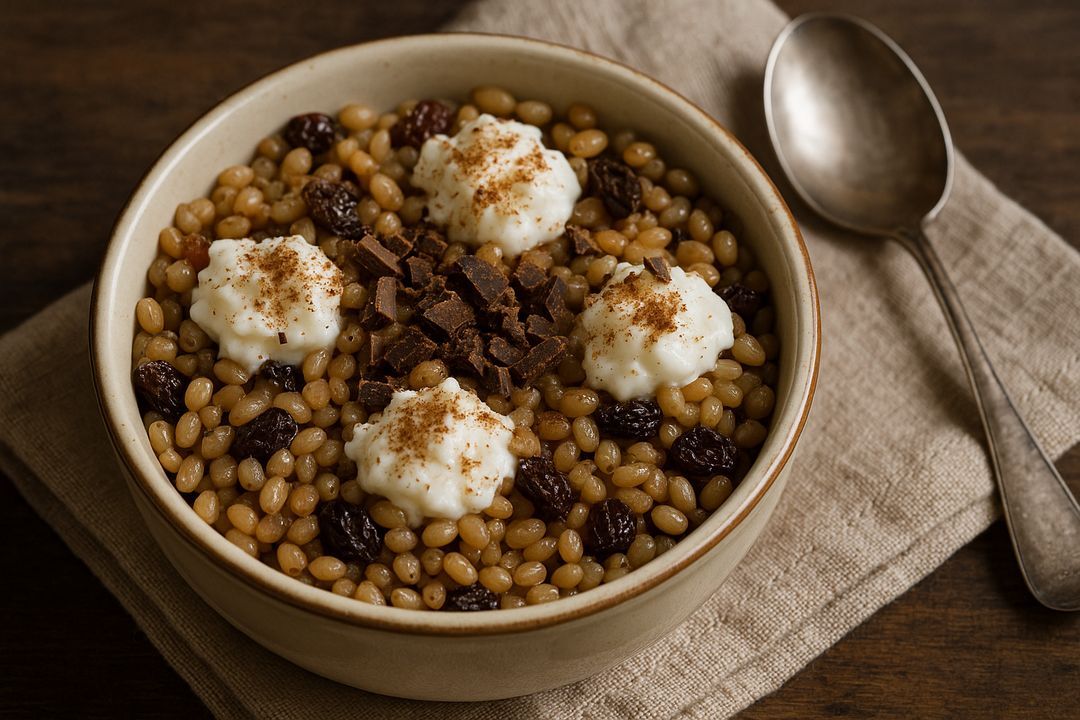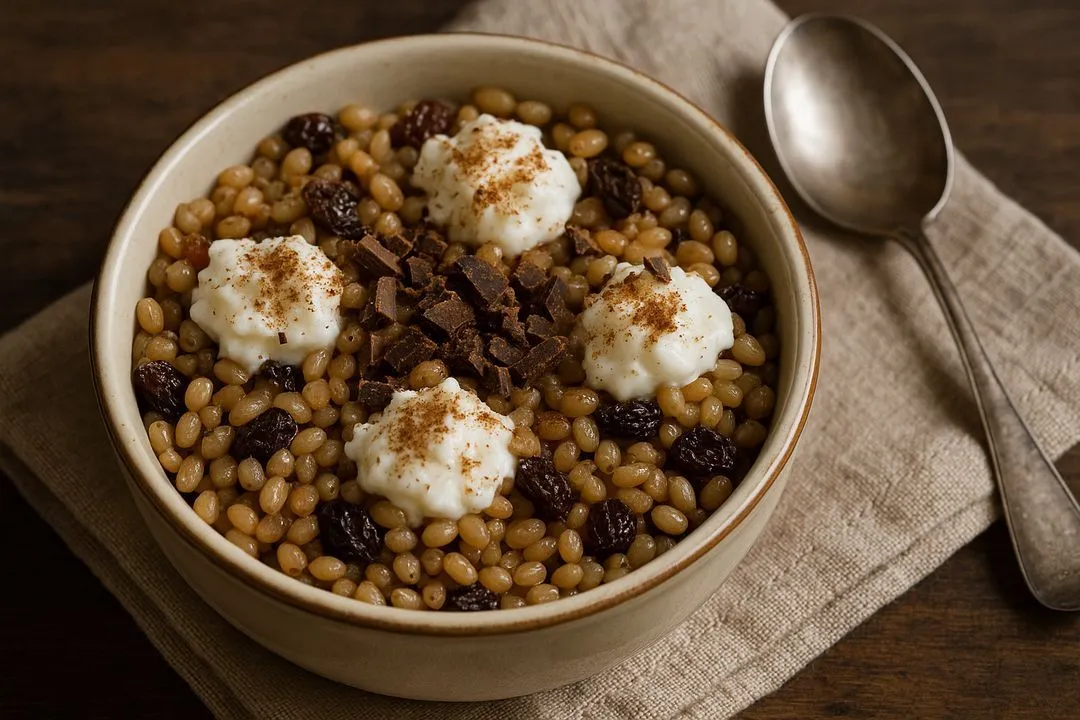The Arab influence on Sicilian cuisine: Cuccìa and the feast of Saint Lucia

When we talk about Sicilian cuisine, its inevitable to think of dishes like pasta alla Norma, arancini, or cassata. However, behind these iconic flavors lies a millennia-long history of cultural influences, most notably Arab influence, which has profoundly shaped the islands gastronomic landscape. Today, I want to introduce you to a lesser-known but fascinating custom and dish: Cuccìa and the feast of Saint Lucy in Syracuse.
The Arab roots of Cuccìa
Cuccìa is a traditional dessert made from boiled wheat, associated with the celebration of December 13th, the day dedicated to Saint Lucy, the patron saint of Syracuse. But why does this dish have Arab origins, and what does it have to do with Sicilian cuisine?
During the Arab rule in Sicily (827-1091 AD), many crops and food techniques were introduced or refined. Among these, the use of whole wheat stands out, which in the Middle East was prepared as a ritual and blessed dish, a symbol of abundance and hope. In Arabic, the term quwwa refers to boiled wheat, a food considered sacred and a bearer of protection.
Sicilian Cuccìa is therefore a direct descendant of these traditions: wheat is slowly boiled and served with sugar, honey, cinnamon, and sometimes ricotta or chocolate. Its preparation and consumption during the feast of Saint Lucia recall ancient rituals of protection against famine and hope for a bountiful harvest.
The Feast of Saint Lucia: Between Devotion and Agricultural Rite
Saint Lucy is celebrated with great devotion in Syracuse, the city where the saint lived and died. The feast is not only religious but also tied to peasant rites: December 13th was traditionally the day when fasts were broken and the new grain, a symbol of rebirth, was consumed.
Cuccìa is therefore not just a dessert but a true rite of passage, a tribute to the harvest and the protection of the community. This event unites the sacred and the profane, Arab culture and Christian tradition, giving rise to a unique celebration.
A meeting of cultures in every grain
The Cuccìa and the feast of Saint Lucia are extraordinary examples of how cuisine can preserve ancient memories and intertwine the stories of diverse peoples. Each grain of boiled wheat encapsulates centuries of cultural exchange, from Arab to Christian Sicily, passing through Norman and Spanish influences.
Today, enjoying Cuccìa means participating in this age-old story, savoring not just a dessert but a living part of Sicilian identity, where Arab influence manifests itself not only in flavors but also in popular rites and traditions.

gourmet
Data di inserimento 19 mag 2025
Report article


Comments
There are no comments yet.